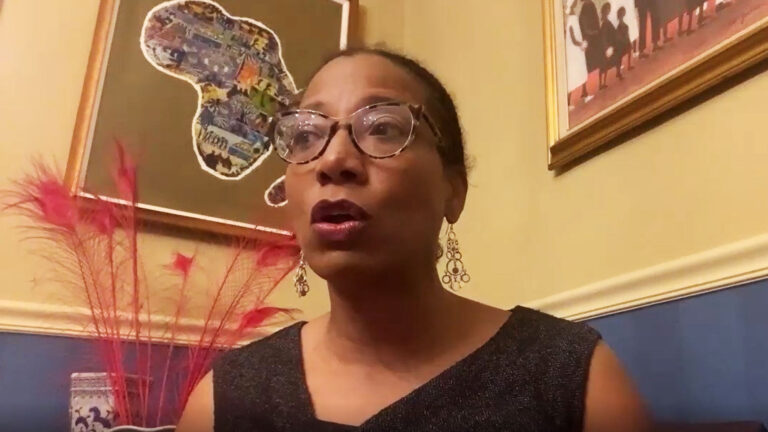CHAMPAIGN — A network of legal aid groups across Illinois is hoping to expand, and is asking for more state money to do so.
Tanya D. Woods is one of the nonprofit leaders behind Illinois Access to Justice. She says the places that are called food deserts due to a lack of grocery stores are often missing legal help as well.
“There absolutely are legal deserts and all one needs to do is at is look around and see what else is absent. And certainly free, quality legal services are at the bottom of that list,” Woods says.
Illinois Access to Justice supported 67 legal aid nonprofits this year on a state-funded budget of $14 million.
Gov. J.B. Pritzker is proposing the state send $10 million dollars to the legal aid nonprofits next year. The Access to Justice network is requesting double that amount – $20 million.

The University YMCA in Champaign is one of the nonprofits able to provide free legal aid, thanks to an Illinois Access to Justice grant. The Y received around $130,000 during the network’s first-half year of work, which ended in June of 2020. The following year, the Y received around $169,000.
Zoë Foote directs immigration legal services at the Y’s New American Welcome Center.
Foote recounts stories of some of the people the New American Welcome Center (NAWC) was able to help thanks to the Access to Justice grant. The Y helped one undocumented woman apply for a U Visa with evidence that her ex-husband had abused her (they also, separately, helped her divorce the husband). While she waits the years it may take to get the visa, she will be able to eat and pay for medical care through a state program NAWC signed her up to.
NAWC has limitations, Foote says. The people working there have gone through enough training and certification to help secure more stable status for many immigrants. But they do not have the training to represent clients in deportation hearings.
Areas just outside of Champaign-Urbana have even fewer services, Foote says.
“We regularly hear from folks from everywhere from Carbondale to Springfield to Peoria. They’re making the trip of two to three hours to see us to work with us, because there’s no one in their communities who are able to serve them, or they aren’t able to pay attorney fees,” Foote says.
NAWC Director Gloria Yen says the Y is advocating for $20 million from the state not to expand its own program, but for other organizations in the Illinois Access to Justice network. She would like to see the money support some of the smaller organizations in Illinois’ legal aid deserts.
Emily Hays is a reporter for Illinois Public Media. Follow her on Twitter @amihatt.

